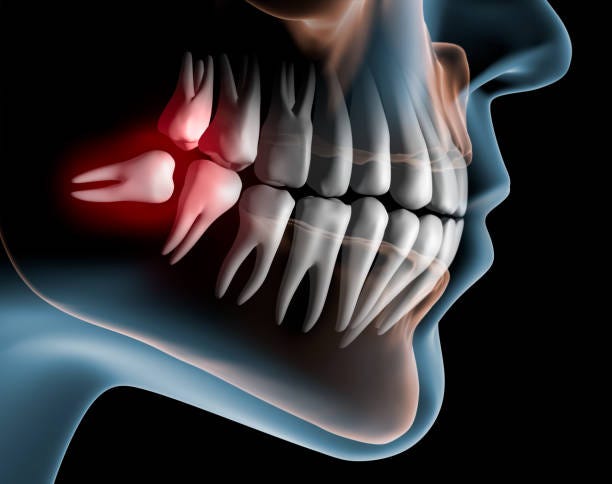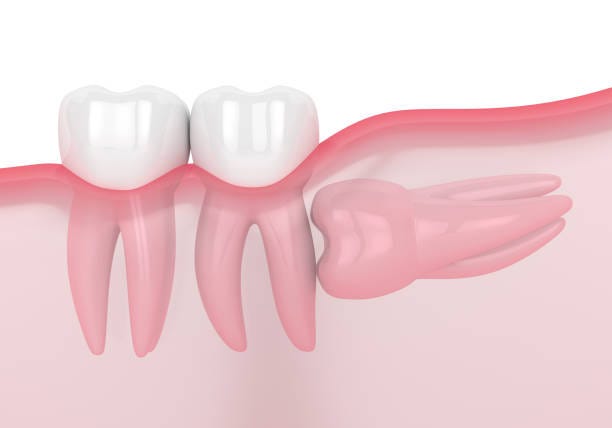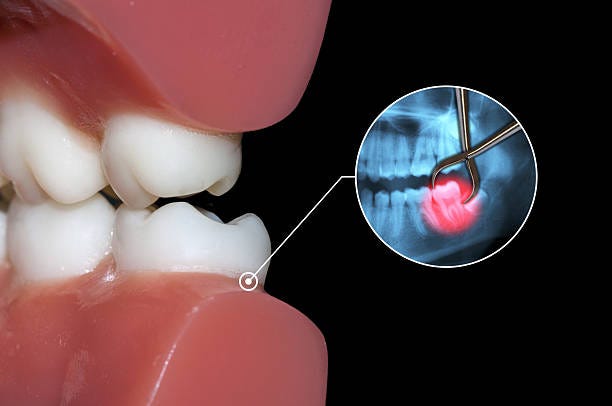Today, I would like to bring your attention to a very problematic and terrible phenomenon that has been haunting mankind since the beginning of the oral cavity: Wisdom teeth. Let’s discuss this in detail
What Is a Wisdom Tooth?

A wisdom tooth as we know it is the last tooth to erupt, usually in your late teens or early 20s. They are usually the last teeth to come in, and they tend to be larger than other teeth. Wisdom teeth are important because they help you chew food, which is essential for healthy eating. If your wisdom teeth don’t erupt properly into the mouth, they can cause pain and damage other parts of your mouth. In this case it is important to seek proper advice and treatment from your Cosmetic dentist in mumbai
Why Do We Have Wisdom Teeth?
There are four reasons we have wisdom teeth:
1. Our ancestors didn’t have access to dentists or braces, and so they needed extra room in their mouths to accommodate these teeth that wouldn’t be used for chewing.
2. They act as an anchor for our jawbone when it needs support during growth spurts or trauma to the face.

3. They can help keep our jaws from becoming too crowded with other teeth, which could cause issues with biting down on food or grinding down teeth against each other (which can lead to gum disease).
4. They can help us chew harder foods like nuts and seeds — something that was important for our ancestors’ diets since food sources were not as abundant back then compared with today’s world where many people eat processed foods that don’t require much chewing at all!
Can I Keep My Wisdom Teeth?
If you have wisdom teeth, you may be wondering if you can keep them.
The short answer is yes, but it’s not always a good idea. In most cases, wisdom teeth don’t have enough room to come in properly and will cause problems for your mouth and gums if they do.
There are some exceptions to this rule:
If your wisdom teeth are healthy and don’t cause any problems, they might be able to remain in place without causing any issues.
When and Why Should Wisdom Teeth Be Removed?
Wisdom teeth, also known as third molars, are the last teeth to develop in the mouth. These four lower teeth can be impacted and come in sideways or even upside down. They can also become impacted below the gum line so that they cannot erupt into the mouth. When this happens, wisdom teeth may need to be removed to prevent damage to other teeth and tissues in your mouth.

Your dentist Mumbai will recommend removal of impacted wisdom teeth if they are causing problems with your bite or other teeth. Impacted wisdom teeth may grow in at an angle or sideways so they can’t easily fit into your mouth and cause crowding of other teeth. If you have crowding around an impacted wisdom tooth, it can cause irritation and inflammation of the gums (pericoronitis) near the tooth or infection around it (pus collection). This could lead to pain and swelling of your face around that area. You may also have difficulty closing your mouth normally if there is a problem with one of these teeth.
Treatment for impacted wisdom teeth usually involves removing them through surgery (extraction). Your dentist will remove them under local anesthesia so you won’t feel any pain during this procedure! After surgery, most people experience some discomfort for about two days after their wisdom teeth are removed. The healing process usually takes about two weeks before you can resume your usual activities. If your impacted wisdom tooth is causing pain, it’s time to see a dentist.
Comments
Post a Comment